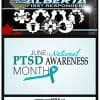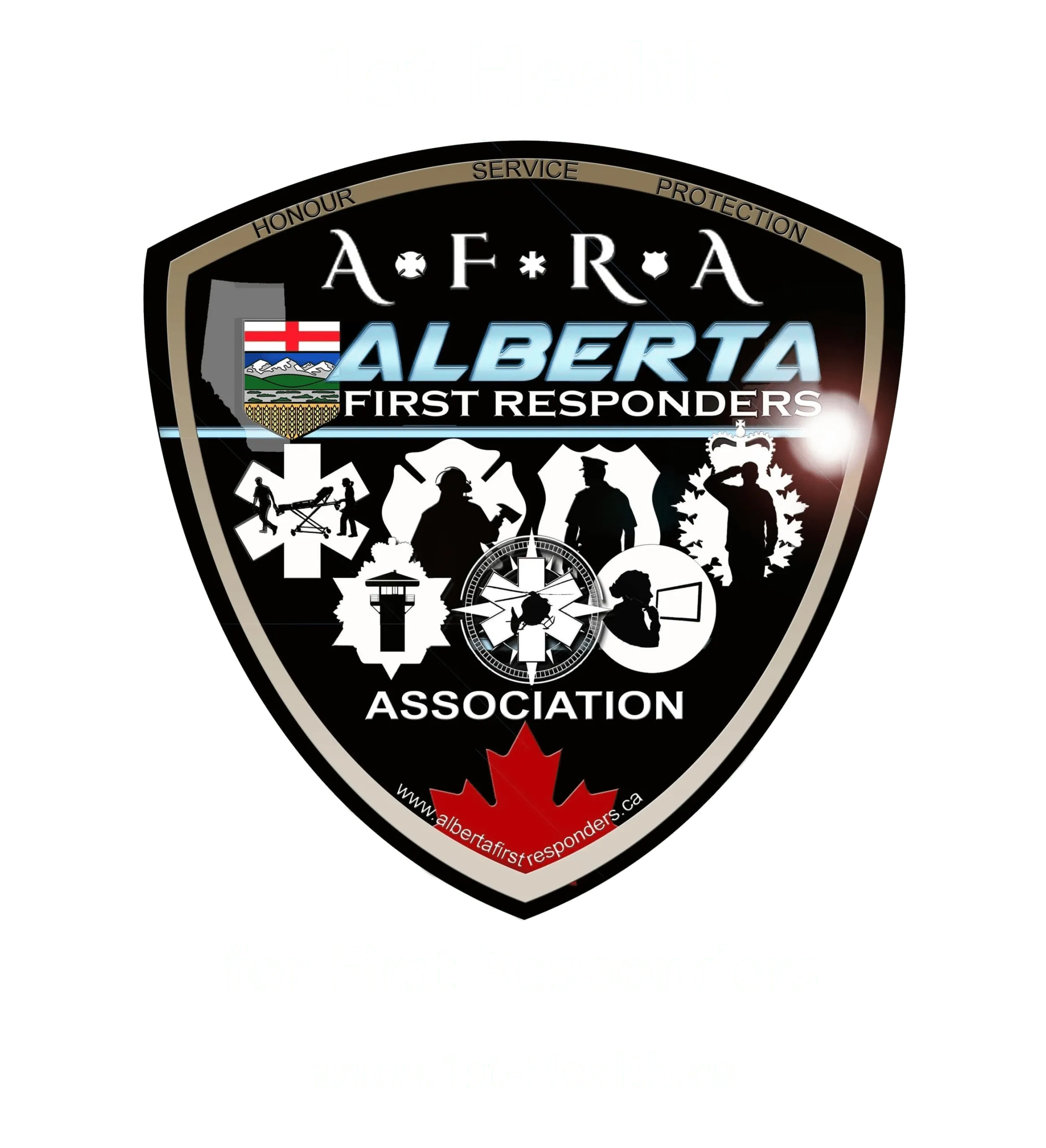Module 3: Mindfulness & Self-Care
In your demanding profession, you constantly face chaos, high stakes, and often, human suffering. It’s easy for your mind to be consumed by the job, even when you’re off duty. This module provides essential strategies to cut through that noise, helping you find moments of calm, intentional restoration, and genuine presence.
Remember: Self-care isn’t selfish; it’s essential for sustained performance, preventing burnout, and ensuring your long-term well-being. You can’t pour from an empty cup, especially not when the calls you respond to require so much of you.
What is Mindfulness in the First Responder Context?
Mindfulness is often misunderstood, especially in high-stress professions. It’s not about becoming passive or ignoring problems; it’s about being present, aware, and able to respond more effectively to whatever arises.
It’s not about emptying your mind; it’s about paying attention, on purpose, without judgment.
-
- Imagine being fully present when you’re checking your gear, or truly listening to your partner, or feeling the Alberta sun on your face during a break. Mindfulness is about bringing a focused, non-judgmental awareness to the current moment, whether that moment is stressful or peaceful. It’s about noticing your thoughts, emotions, and physical sensations without getting swept away by them.
- For first responders, this can mean noticing the adrenaline surge without panicking, observing the scene more clearly, or recognizing a growing frustration in yourself before it boils over.
How mindfulness can reduce rumination, improve focus under pressure, and increase emotional awareness.
-
- Reduced Rumination: How often do you replay a call in your head, second-guessing decisions or dwelling on what-ifs? Mindfulness helps you notice these thought loops and gently guide your attention back to the present, reducing the mental burden.
- Improved Focus Under Pressure: By training your attention through mindfulness practices, you enhance your ability to stay calm and focused when chaos erupts. This can improve decision-making, situational awareness, and crew communication on scene.
- Increased Emotional Awareness: You develop a better understanding of your own internal states – recognizing stress building, identifying specific emotions, and understanding what triggers them. This allows for proactive coping rather than reactive overwhelm.
Applying mindfulness on shift:
Noticing your breath, physical sensations, and surroundings to stay present and focused.
-
- During a routine task: Whether you’re checking equipment, driving to a call, or filling out paperwork, bring your full attention to the task at hand. Notice the textures, sounds, and movements.
- During a critical incident (if safe): While you must remain operationally effective, moments of brief awareness can be grounding. Notice your breath as you prepare to enter a structure, feel your feet firmly planted as you lift a patient, or observe the details of your immediate environment. This isn’t about distraction but about enhancing your presence.
Between calls:
Use the downtime between calls to reconnect with your breath, stretch, or simply notice the sky outside. These micro-breaks can prevent stress accumulation.
Practical Mindfulness Exercises (Short & Sweet)
You don’t need hours of meditation. These exercises are quick, discreet, and effective – designed to fit into a first responder’s busy day.
3-Minute Breathing Space: A Quick Reset for Your Mind:
This exercise is perfect for a quick break, before or after a challenging call, or during a transition.
-
- Awareness: Take a moment to notice what’s happening right now. What thoughts are present? What feelings? What physical sensations? Simply observe, without judgment.
- Gathering: Gently bring your attention to your breath. Feel the sensation of the breath as it enters and leaves your body – perhaps in your belly, chest, or nostrils. Let your breath be your anchor.
- Expanding: Now, expand your awareness from your breath to include your entire body. Notice any areas of tension or discomfort and, as you breathe out, imagine releasing that tension. Expand your awareness to include your surroundings – sounds, sights, smells – still maintaining a sense of calm and presence. Use this in the fire hall, in your police cruiser, or in the ambulance before your next call.
Mindful Eating/Drinking: Bringing Awareness to Simple Daily Activities:
Even a quick coffee or a meal at the station can be a mindful moment.
-
- As you take a sip of water or coffee, notice its temperature, the sensation in your mouth, the act of swallowing.
- When you eat, notice the colours, textures, and smells of your food before you even take a bite. Chew slowly, tasting each flavour.
- This simple practice helps to break the habit of mindless consumption and can ground you in the present moment.
Body Scan for Tension Release: A Quick Check-in:
First responders often carry a lot of physical tension. This quick scan helps you identify and release it.
-
- Close your eyes briefly if possible, or soften your gaze.
- Start at the top of your head and slowly scan down your body. Notice any areas of tension – forehead, jaw, neck, shoulders (a common spot for first responders!), chest, back, abdomen, hands, legs, feet.
- As you identify tension, take a deep breath in, and as you exhale, consciously try to soften and release that specific area. Repeat as needed.
- This can be done while sitting in the truck, waiting for dispatch, or before you start your shift.
Crafting Your Personalized Self-Care Routine
Self-care is not a one-size-fits-all solution. It’s about consciously engaging in activities that replenish your energy, soothe your mind, and nourish your spirit.
Beyond the Bubble Bath: Self-Care Tailored to Your Unique Needs:
Forget the clichés. Your self-care might look different every day.
-
- Physical: Hitting the gym, going for a run along the river valley, hiking in the Kananaskis, cycling, playing sports, getting a massage, or even just stretching.
- Mental: Reading a book (not work-related!), listening to a podcast, learning a new skill, doing a puzzle, or simply engaging in quiet contemplation.
- Emotional: Connecting with a trusted friend, talking to a therapist, journaling, spending time with pets, listening to music that uplifts you.
- Spiritual (if applicable): Attending services, meditation, spending time in nature, connecting with personal values.
- Creative: Painting, drawing, playing a musical instrument, writing, cooking.
- Community: Volunteering for a cause unrelated to your work, attending local events.
Micro Self-Care: Integrating Small, Restorative Moments Throughout Your Day:
You don’t always have hours. Leverage the power of micro-moments.
-
- 5-minute quiet contemplation: Find a quiet spot at the station or in your vehicle.
- Listening to one favourite song: A quick mood boost.
- A few deep breaths before opening the door to your home.
- Stretching during a coffee break.
- Looking at a photo of loved ones or a serene landscape.
- These small, consistent acts prevent cumulative stress from building to overwhelming levels.
The Importance of “Decompression Time”: Strategies for Transitioning from Shift Work Back to Home Life:
This is critical for first responders. You can’t go from a critical incident directly to fully present family time without a transition period.
-
- Ritualistic Change of Uniform: As soon as possible, change out of your work uniform. This physical act signals a transition.
- “Decompression Drive”: If you drive home, use this time to listen to non-work related music, a podcast, or simply enjoy the quiet. Avoid immediately turning on the news or engaging in intense phone calls.
- Shower: A warm shower can help wash away the “day” and physically relax you.
- Short Walk: Take a brief walk around the block or in a local park. This physical movement helps to discharge lingering adrenaline and transition your mind.
- Brief Check-in, Then Boundaries: Inform your family you’re home and briefly acknowledge your day (“It was a tough one, I need to decompress for a bit”) before retreating for your chosen decompression activity. This manages expectations and prevents you from bringing work stress directly into your personal space.
Setting Healthy Boundaries
Boundaries are not about pushing people away; they’re about protecting your own well-being and capacity to function effectively.
Learning to Say “No” to Extra Commitments When You’re Overwhelmed:
-
- You are dedicated, and your instinct is to help. However, over-commitment leads to burnout.
- Prioritize your core duties and essential rest. Politely decline non-essential requests when your plate is full, explaining that you need to maintain your capacity.
- This applies to extra shifts, volunteer work, or even social commitments that you genuinely don’t have the energy for.
Protecting Your Off-Duty Time for Rest and Recovery:
-
- This is sacred time. Resist the urge to check work emails constantly or engage in long, heavy work-related phone calls with colleagues when you’re off.
- Make a conscious effort to disconnect. Your department will manage without you for your designated time off.
Managing Social Media Consumption and News Cycles, Especially After Difficult Incidents:
-
- After a major local incident, the news and social media can be saturated with details, opinions, and even graphic content.
- Be mindful of your consumption. Limit exposure to what might retraumatize you or fuel rumination. You were there; you don’t need to re-live it through external media.
- Unfollow accounts that consistently trigger negative emotions.
Hobbies and Meaningful Activities
Beyond the adrenaline and the uniform, who are you? Reconnecting with what brings you joy and purpose outside of your profession is vital for a balanced and fulfilling life.
Reconnecting with Passions Outside of Work That Bring You Joy and a Sense of Purpose:
-
- What did you love to do before you became a first responder, or before the job started to consume more of your time?
- Dust off that old guitar, get back on the ski hill, try a new recipe, explore Alberta’s incredible provincial parks, or spend time volunteering for a cause completely unrelated to emergency services.
- These activities provide a sense of personal identity and worth beyond your job title.
The Importance of Having a Life Beyond the Uniform:
-
- Your profession is a huge part of who you are, but it’s not the entirety of who you are.
- Developing a rich life outside of work creates essential buffers against occupational stress. It gives you something else to look forward to, something to talk about, and different communities to belong to.
- A well-rounded life fosters greater resilience and overall satisfaction, allowing you to return to your duties refreshed and more capable.



